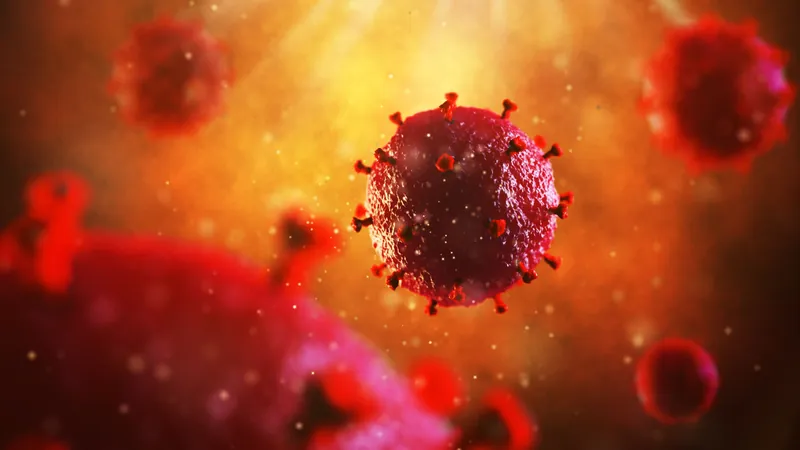
Lockdowns Potentially Disrupted Immune Responses in People Living with HIV
2025-01-02
Author: Yu
Lockdowns Potentially Disrupted Immune Responses in People Living with HIV
A new study published in *Frontiers in Immunology* has found that lockdowns during the COVID-19 pandemic may have significantly impacted the immune responses of individuals living with HIV (PLHIV). As researchers explored the complex relationship between lockdown conditions and immune health, they uncovered concerning trends associated with altered inflammatory responses tied to these unprecedented health measures.
Beginning in March 2020, lockdowns were implemented globally as a response to the emerging threat of COVID-19, particularly affecting populations with already compromised immune systems, like those living with HIV. While these measures were essential for public health, they also raised questions about the potential consequences on immune functioning for vulnerable populations.
The study analyzed data from two ongoing longitudinal studies, 2000HIV and 200FG, as part of the Human Functional Genomics Project. Participants included asymptomatic PLHIV and a control group of healthy adults aged 18 and over, recruited from Dutch treatment centers and hospitals. A total of 1478 participants were included in the discovery cohort, with an additional 320 in the validation cohort, providing a robust dataset for analysis.
Researchers collected blood samples pre- and post-lockdown to assess cytokine production—a crucial component of immune response—among unvaccinated PLHIV. What they found was startling: significant differences emerged between immune responses before and after the lockdowns, as well as between those who contracted COVID-19 and those who were vaccinated. Specifically, they discovered 294 proteins that were downregulated and five upregulated in those infected with COVID-19, while vaccinated participants showed even more pronounced changes, with 943 downregulated and 215 upregulated proteins.
Interestingly, the analysis indicated that past COVID-19 infection did not notably affect immune response outcomes among participants, but vaccination resulted in changes in cytokine production—two cytokines decreased while one increased. This complex interplay highlights potential long-lasting effects on immune systems that may not be fully understood yet.
Furthermore, the researchers conducted an epigenome-wide association study, suggesting that the effects of vaccination and lockdowns may lead to enduring DNA methylation changes that extend beyond three months post-exposure, unlike prior COVID-19 infections which had no significant impact on DNA methylation.
While this study offers valuable insights, it also comes with limitations: a limited number of healthy control participants and the challenge of assessing the mechanisms behind functional immunological changes. The cross-sectional design makes it harder to draw definitive conclusions about causality.
Ultimately, the researchers emphasize the need for heightened awareness regarding the long-term consequences of social isolation measures. They conclude that restrictions aimed at preventing infectious disease exposure could have unforeseen effects on immune health, particularly for populations already at risk, emphasizing a greater need for tailored health strategies moving forward.
As the world continues to grapple with the ramifications of the COVID-19 pandemic, the findings from this study could be pivotal for public health policies and healthcare approaches tailored to immunocompromised individuals. PLHIV may be canaries in the coal mine for understanding how our immune systems respond to drastic societal changes.
 Brasil (PT)
Brasil (PT)
 Canada (EN)
Canada (EN)
 Chile (ES)
Chile (ES)
 Česko (CS)
Česko (CS)
 대한민국 (KO)
대한민국 (KO)
 España (ES)
España (ES)
 France (FR)
France (FR)
 Hong Kong (EN)
Hong Kong (EN)
 Italia (IT)
Italia (IT)
 日本 (JA)
日本 (JA)
 Magyarország (HU)
Magyarország (HU)
 Norge (NO)
Norge (NO)
 Polska (PL)
Polska (PL)
 Schweiz (DE)
Schweiz (DE)
 Singapore (EN)
Singapore (EN)
 Sverige (SV)
Sverige (SV)
 Suomi (FI)
Suomi (FI)
 Türkiye (TR)
Türkiye (TR)
 الإمارات العربية المتحدة (AR)
الإمارات العربية المتحدة (AR)